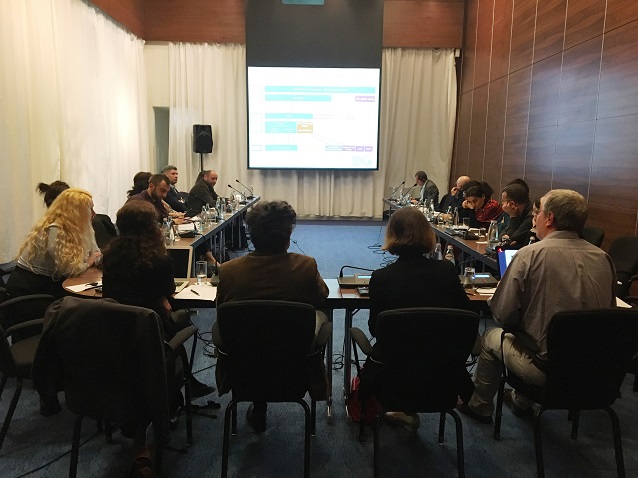FAO recommends Georgia to adopt national strategy on food loss reduction

Food loss in Georgia is an issue that needs to be addressed urgently and the United Nations Food and Agriculture Organization (FAO) recommendations the country’s government to adopt a national strategy to reduce the waste.
Exchanging experience and information on food loss and waste reduction in Georgia was the main objective of the stakeholders’ consultation workshop held in Tbilisi today.
The workshop was organised by the European Union (EU) and FAO within the European Neighbourhood Programme for Agriculture and Rural Development (ENPARD). Government representatives and ENPARD stakeholders attended the event.
At the workshop, FAO expert Maryam Rezaei presented her study on Food Loss and Waste in Georgia. The study was based on interviews with growers, processors, exporters and other actors within the hazelnut, citrus and potato value chains.

Exchanging experience and information on food loss and waste reduction in Georgia was the main objective of the stakeholders’ consultation workshop held in Tbilisi today. Photo: FAO's press office.
According to the study, the interviewees in Georgia highlighted losses in various commodities as an issue that needs to be addressed urgently. Lack of awareness among farmers and processors on good agricultural practices and post-harvest management skills, as well as lack of knowledge about new technologies coupled with lack of access to technology were identified as the major causes for food losses.
In Rezaei’s word, access to education, training and new technologies as well as exchange of best practices and experience at international level is the key to reduce the food losses in the country.
"The aim of the workshop was to raise awareness among Georgian policymakers on the importance of reducing food loss and food waste and to investigate the magnitude of the issue in the country and the impact of food loss on the income and livelihood of smallholder producers”, Rezaei said.
According to FAO, globally, 1/3 of food (1.3 billion ton) produced for human consumption is lost or wasted along the value chain. Food losses result directly in less food being available, and therefore contribute to food insecurity. Moreover, food loss and waste have negative environmental impacts.
To solve the issue and reduce food waste and food loss, FAO recommends to improve production planning, promote resource-efficient production and processing practices, improve preservation and packing technologies, transportation and logistics management and ensuring that all chain actors, including women and small producers, receive a fair share of the benefits.
ENPARD is helping the government of Georgia to deal with the food loss and waste problem in the country. Implemented since 2013 with a total budget of €102 million (2013-2019), the main goal of the ENPARD programme is to reduce rural poverty in Georgia.
 Tweet
Tweet  Share
Share